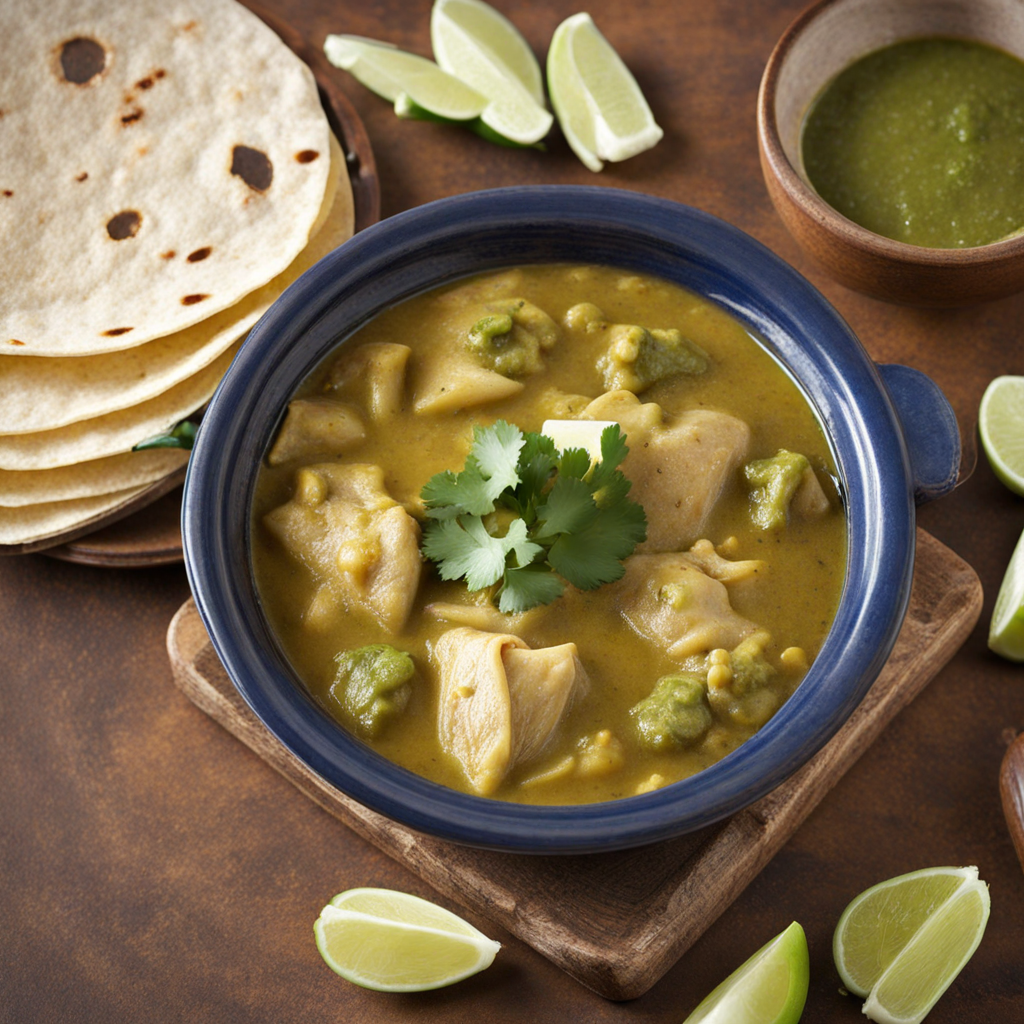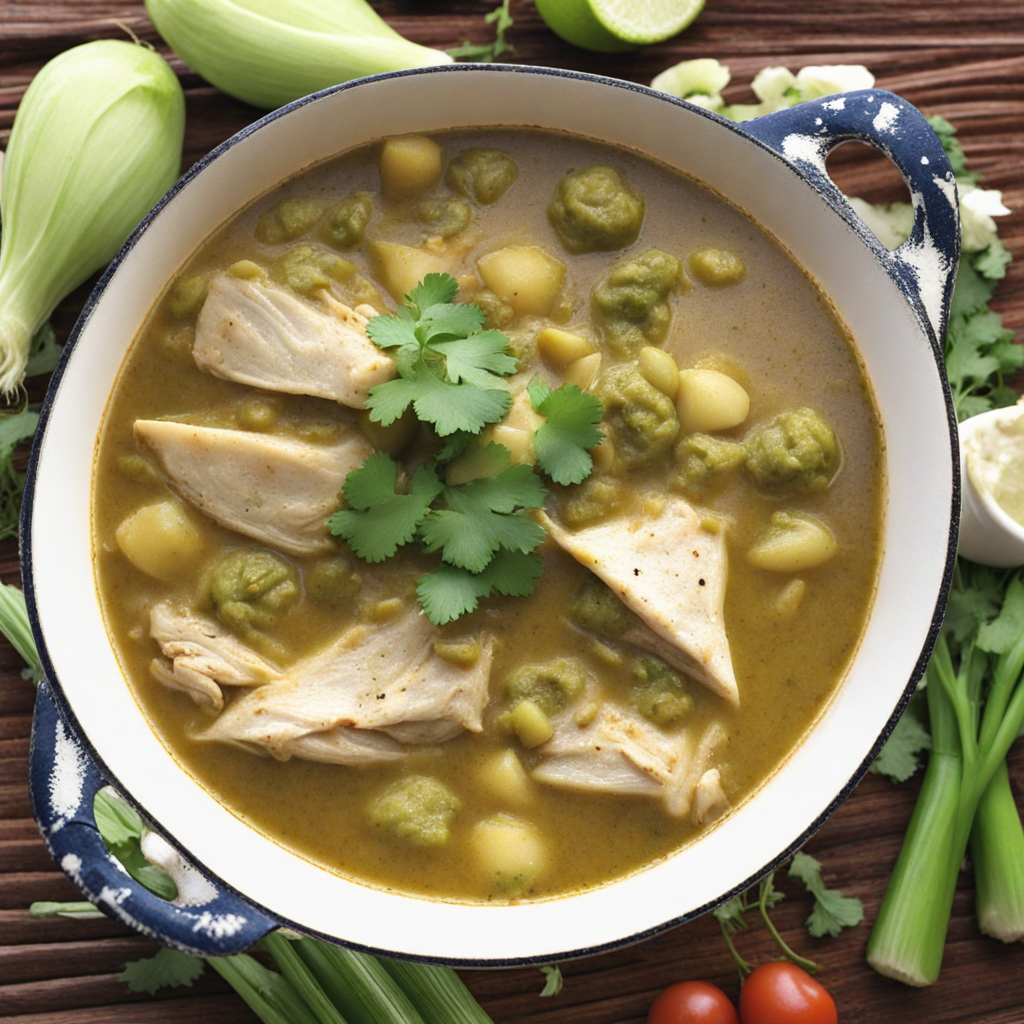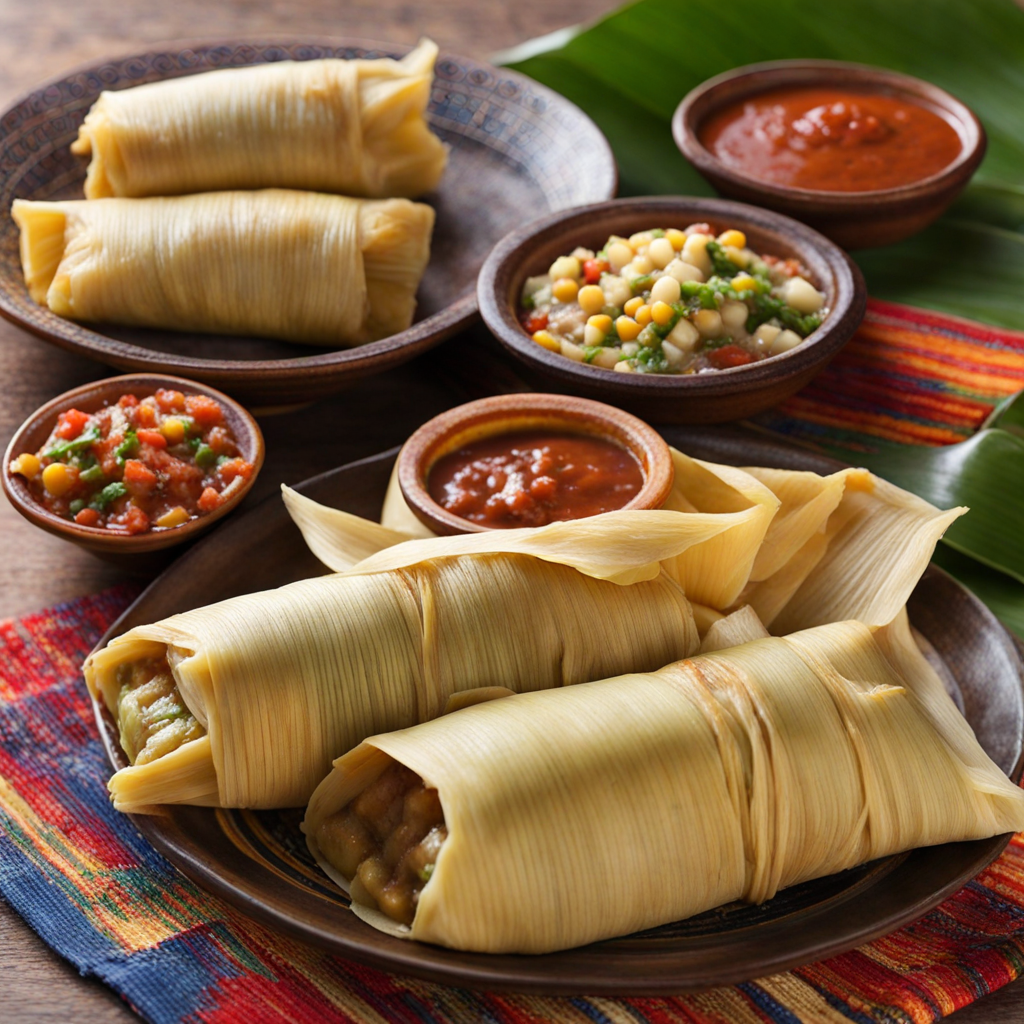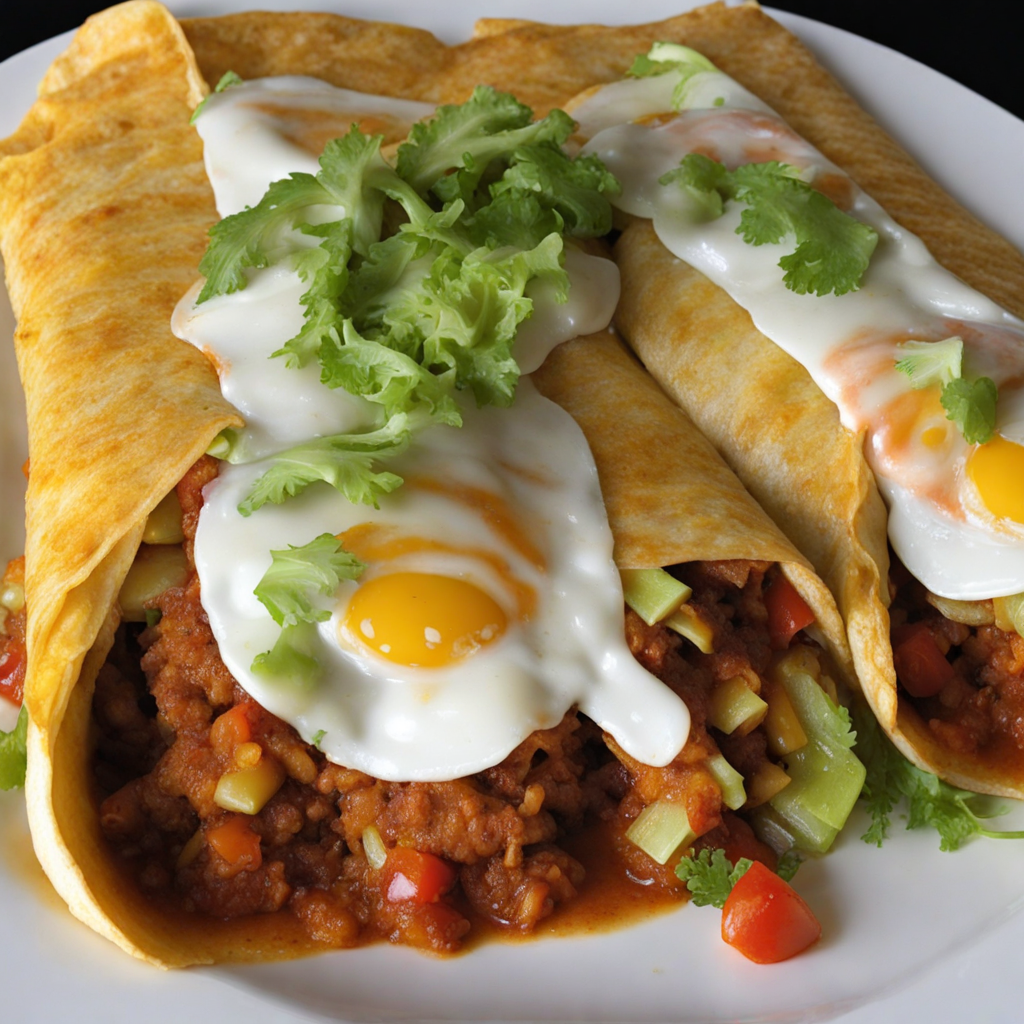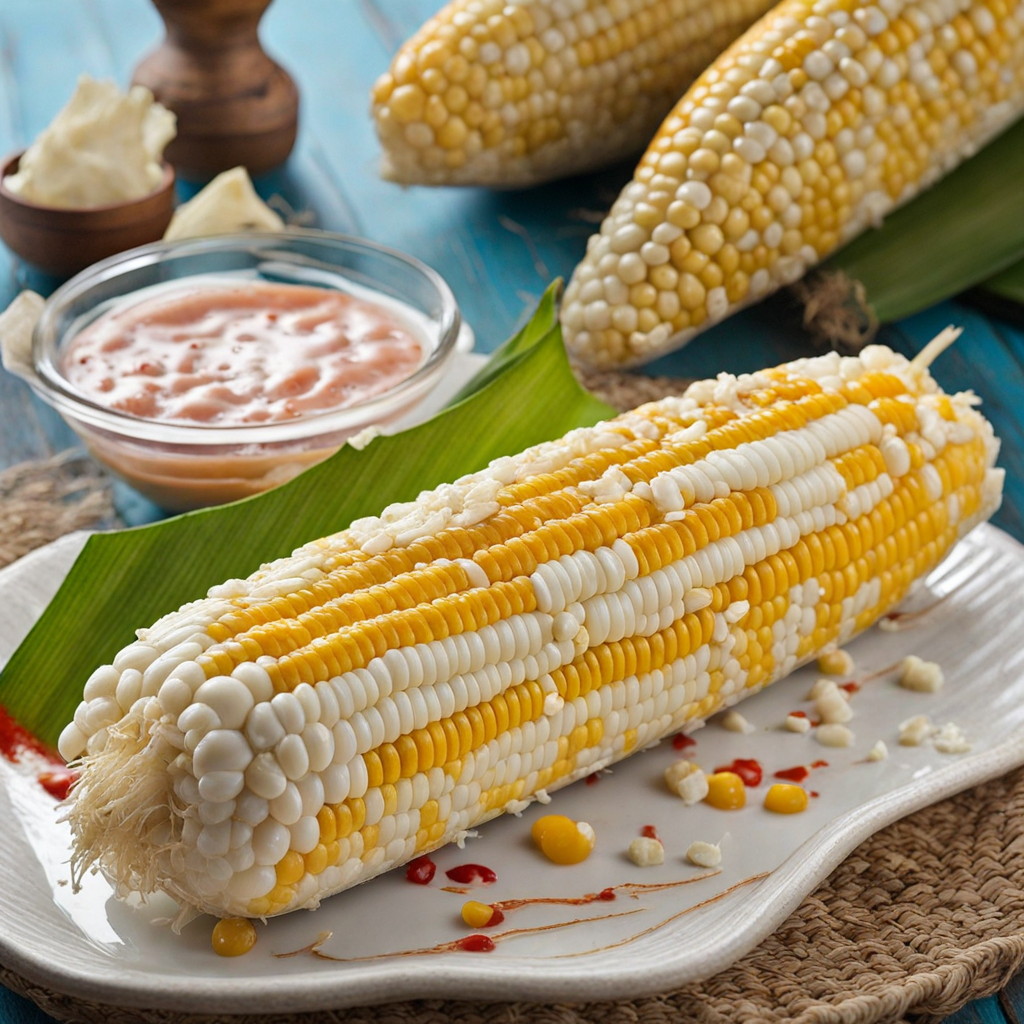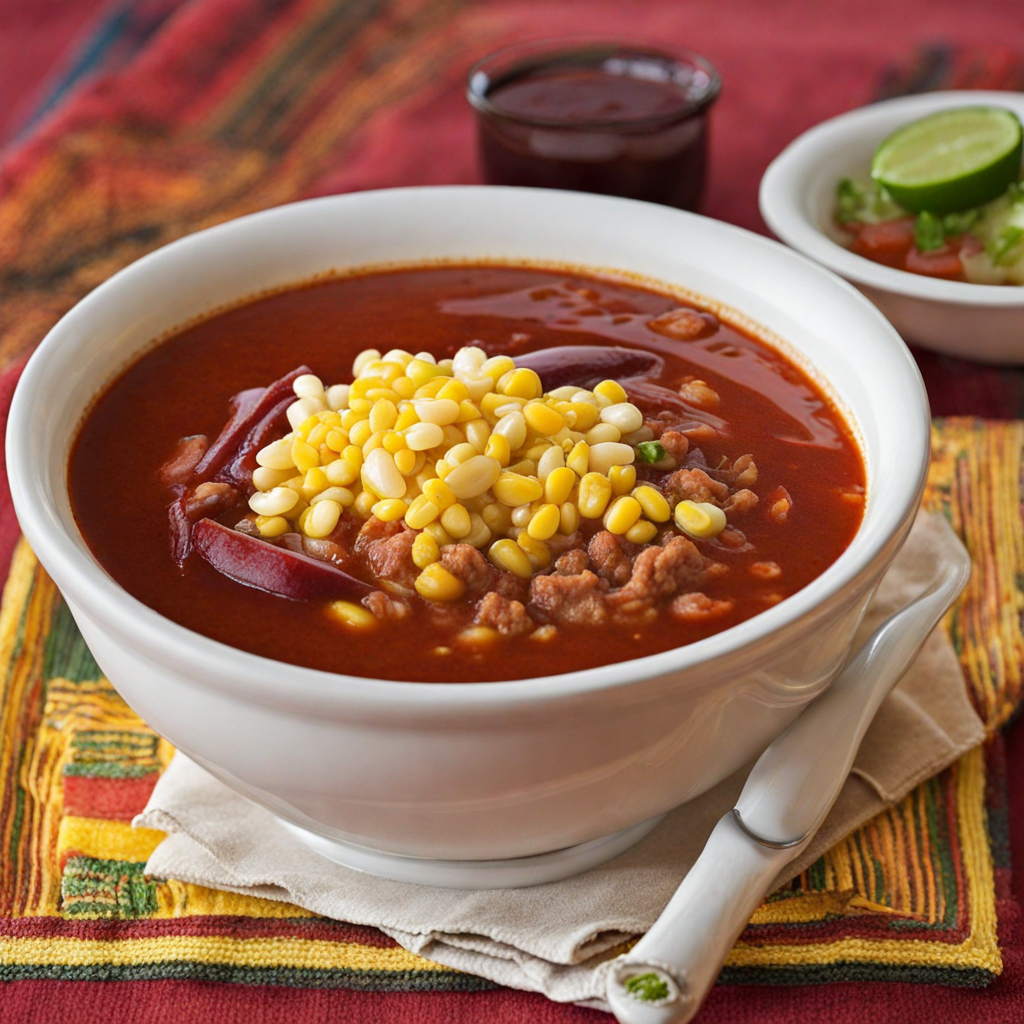Jocon
Jocon is a vibrant and aromatic dish hailing from Guatemala, characterized by its rich green color and fresh flavors. The base of this dish is a savory chicken stew, traditionally made with chicken pieces simmered in a sauce derived from a blend of tomatillos, green onions, cilantro, and jalapeños. The tomatillos provide a tartness that perfectly complements the freshness of the herbs, creating a delightful balance that excites the palate. This unique combination not only gives Jocon its stunning hue but also imbues it with a depth of flavor that is both comforting and invigorating. As the chicken cooks in this verdant sauce, it becomes tender and infused with the vibrant notes of the green ingredients. The dish is often served alongside rice or corn tortillas, which are perfect for soaking up the flavorful sauce. The texture of the chicken, combined with the smoothness of the sauce, creates a satisfying experience that invites you to savor each bite. Additionally, the use of fresh, local ingredients highlights the traditional Guatemalan approach to cooking, where the emphasis is placed on vibrant flavors and wholesome nutrition. Jocon is not just a meal; it's a cultural experience that reflects the culinary heritage of Guatemala. The dish is often prepared for special occasions and family gatherings, making it a beloved staple in many households. With each mouthful, you are transported to the heart of Guatemalan cuisine, where the harmony of flavors and the freshness of the ingredients tell a story of tradition and love for food. For those looking to expand their culinary horizons, Jocon offers a delightful adventure into the tastes of Central America.
How It Became This Dish
Jocón: A Culinary Treasure of Guatemala Jocón is a traditional Guatemalan dish that embodies the rich cultural tapestry of the country. It is a green chicken stew, distinguished by its vibrant emerald hue and unique blend of flavors. To truly appreciate Jocón, we must explore its origins, cultural significance, and how it has evolved over time. Origins of Jocón The roots of Jocón can be traced back to the indigenous Maya civilization, which thrived in what is now Guatemala for thousands of years. The Maya had a profound understanding of agriculture, cultivating staples like maize, beans, and squash—ingredients that form the backbone of Guatemalan cuisine. The use of green herbs and vegetables in dishes can also be linked to the Maya’s relationship with their environment, where they utilized local flora to enhance flavors and nutrition. The word “Jocón” itself is derived from the Nahuatl term “xocon,” which means “green.” This etymology highlights the dish's vibrant color, primarily derived from its key ingredients: tomatillos (or husk tomatoes), cilantro, green onions, and green peppers. These ingredients are blended to create a sauce that is both refreshing and aromatic, serving as the foundation for the dish. Cultural Significance In Guatemalan culture, Jocón is more than just a meal; it is a dish that represents community, family, and tradition. It is often prepared for special occasions, family gatherings, and celebrations, serving as a symbol of hospitality and warmth. The preparation of Jocón can be a communal activity, bringing family members together to cook and share stories, reinforcing social bonds and cultural identity. The dish also reflects the fusion of indigenous and colonial influences. Following the Spanish conquest in the 16th century, new ingredients such as chicken and spices like cumin and black pepper were introduced to the region. This melding of culinary traditions created a distinct flavor profile that is now characteristic of Jocón. The incorporation of chicken into the dish illustrates how indigenous peoples adapted to new ingredients while preserving their culinary heritage. The Ingredients of Jocón At its core, Jocón is a simple yet flavorful stew made with chicken, but it is the green sauce that truly sets it apart. The sauce is primarily made from tomatillos, which are small, green, and slightly tart, resembling tomatoes. These are combined with fresh cilantro, jalapeño or green bell peppers, and green onions, creating a zesty and aromatic blend. Some variations may include avocado leaves, giving the dish a distinctive flavor that further ties it to the region's agricultural heritage. The chicken is usually cooked until tender, allowing it to absorb the vibrant flavors of the green sauce. Traditionally, Jocón is served with rice and corn tortillas, staples in Guatemalan cuisine that complement the dish's rich flavors and textures. Development Over Time As Guatemala has evolved, so too has Jocón. The dish has maintained its traditional roots while adapting to contemporary culinary trends and preferences. In urban areas, for instance, chefs have begun experimenting with ingredients, introducing variations such as Jocón made with turkey or even vegetarian versions that substitute chicken with seitan or jackfruit. These adaptations reflect a growing awareness of dietary preferences and an increasing interest in sustainable eating. In addition to local adaptations, Jocón has also gained recognition beyond Guatemala's borders. As the diaspora community has spread across the world, they have carried their culinary traditions with them, introducing Jocón to new audiences. Food festivals, cultural events, and restaurants specializing in Guatemalan cuisine have contributed to the dish's popularity, allowing it to be appreciated by those unfamiliar with its roots. Jocón Today Today, Jocón continues to be a beloved dish in Guatemala and among Guatemalan communities worldwide. It is often featured in cookbooks that celebrate Central American cuisine and is a staple in many households. The resurgence of interest in traditional foods and local ingredients has further solidified Jocón's place in the culinary landscape. Jocón is also emblematic of the broader movement toward preserving traditional cooking methods and ingredients. The increasing popularity of farm-to-table dining and the emphasis on local sourcing resonate with the principles that underpin Jocón’s historical development. Many chefs and home cooks alike are returning to the basics, valuing the freshness of local produce and the importance of cultural heritage in cooking. Conclusion Jocón is more than just a green chicken stew; it is a dish steeped in history, culture, and community. Its origins in the ancient Maya civilization, combined with the influences of colonialism, have forged a unique culinary identity that continues to thrive today. The dish's ability to adapt and evolve while retaining its core flavors speaks to the resilience and creativity of Guatemalan cuisine. As Jocón makes its way into the hearts and homes of food lovers around the world, it serves as a reminder of the rich cultural heritage of Guatemala and the importance of food in fostering connection and tradition. Whether enjoyed at a family gathering or in a bustling restaurant, Jocón remains a testament to the power of food to tell stories, bridge communities, and celebrate the past while looking toward the future.
You may like
Discover local flavors from Guatemala


